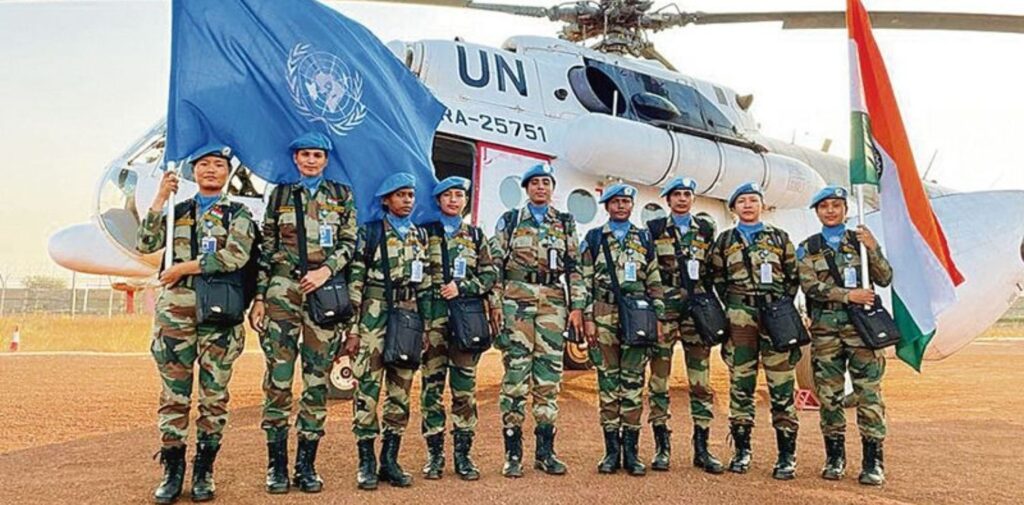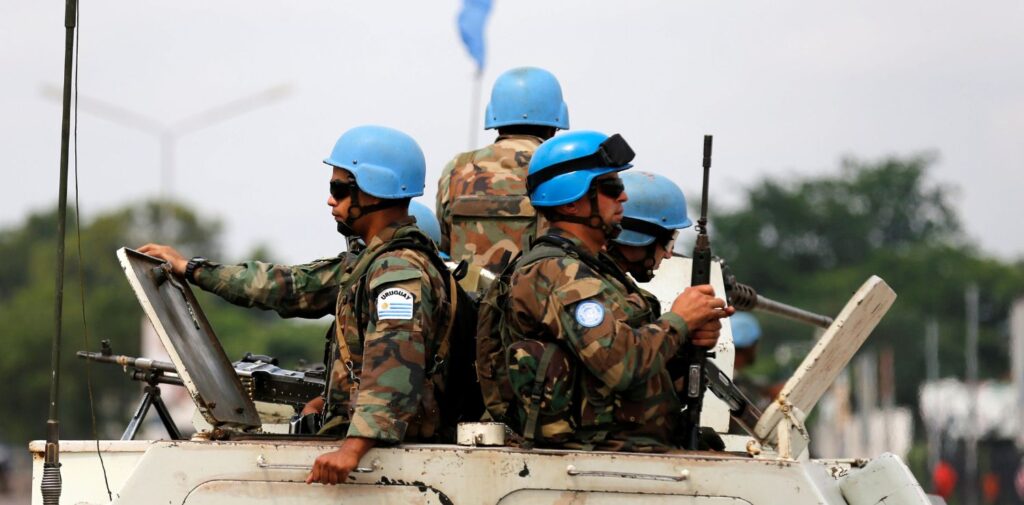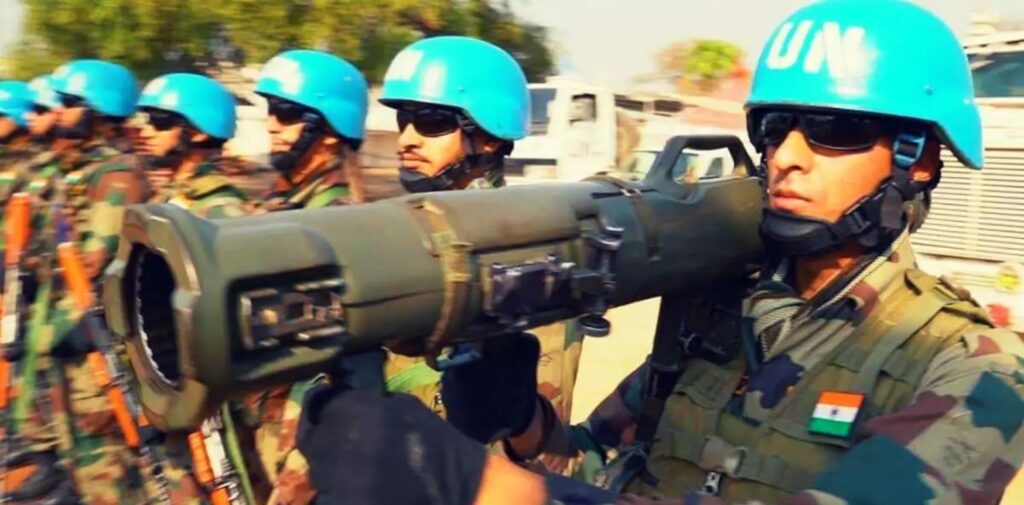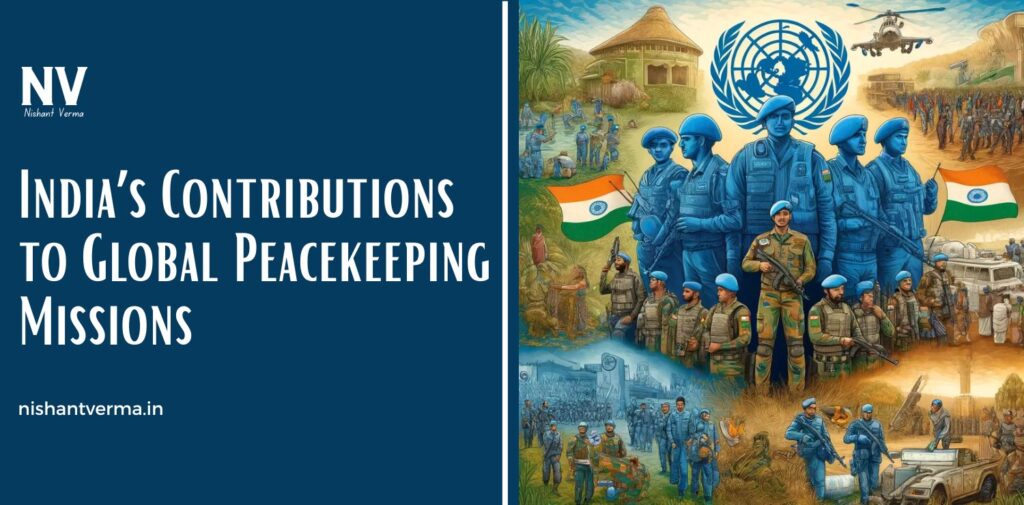India has long been recognized for its active participation in global peacekeeping missions. As one of the largest contributors to United Nations (UN) peacekeeping operations, India has played a significant role in maintaining peace and security in conflict-ridden regions around the world. The country’s commitment to promoting peace, stability, and human rights has earned it respect and recognition on the global stage. In this article, we will explore India’s contributions to global peacekeeping missions, the reasons behind its active participation, and the impact it has had on the international community.
India’s Historical Commitment to Peacekeeping
India’s commitment to global peacekeeping can be traced back to its post-independence era. After gaining independence in 1947, India adopted a foreign policy centered around peace, non-alignment, and international cooperation. The country strongly believed in the importance of maintaining global peace and security, and its participation in peacekeeping missions became a natural extension of its foreign policy.
India’s first major contribution to UN peacekeeping came in 1950, during the Korean War, when it sent a contingent of troops to assist in the stabilization efforts. Since then, India has continued to actively contribute to various peacekeeping missions under the auspices of the United Nations. Over the years, India has sent thousands of troops, police officers, and civilian personnel to conflict zones across the world, including Africa, the Middle East, and Southeast Asia.

India’s Role in United Nations Peacekeeping Missions
The United Nations has been the leading body for coordinating global peacekeeping efforts, and India has been one of the largest contributors to its missions. India’s peacekeepers have served in various regions such as the Democratic Republic of Congo, Sudan, Liberia, Lebanon, and Cyprus. India has deployed both military and police personnel to help restore peace, protect civilians, and assist in the post-conflict reconstruction process.
India’s peacekeeping forces are known for their professionalism, dedication, and humanitarian approach. Indian peacekeepers are often deployed in volatile regions where conflict has displaced millions of people. Their primary mission is to ensure the safety and security of civilians, help with the delivery of humanitarian aid, and assist in the disarmament and reconciliation processes. India has also contributed to rebuilding efforts by helping in the reconstruction of infrastructure, providing medical assistance, and aiding in the rehabilitation of displaced persons.
In addition to military personnel, India has also provided civilian personnel for peacekeeping missions. These civilians play a crucial role in supporting the peace process by working on projects related to governance, human rights, and economic development. India’s civilian peacekeepers help create a stable and secure environment where lasting peace can be achieved.
The Blue Helmets: India’s Contribution to UN Peacekeeping Forces
The term “Blue Helmets” refers to the peacekeeping forces of the United Nations, and Indian soldiers have become an iconic part of this global force. Indian peacekeepers have earned a reputation for their professionalism, impartiality, and commitment to upholding the principles of the United Nations. The Indian Army’s role in peacekeeping missions is often praised for its discipline and ability to carry out difficult tasks in challenging environments.
India’s peacekeeping forces have earned the trust of local communities and the international community alike. They have been involved in a wide range of peacekeeping activities, from monitoring ceasefires to providing humanitarian aid. In countries like Liberia, India’s peacekeepers helped restore order after years of civil war and assisted in creating conditions for a democratic government to take root.
Indian peacekeepers are known for their ability to engage with local communities, building trust and fostering cooperation. They work closely with local leaders and organizations to address the needs of the population and ensure that peace is sustainable. The Indian Army’s motto, “Service before Self,” reflects the commitment of India’s peacekeepers to their mission and to the well-being of the people they serve.

India’s Peacekeeping Philosophy: An Approach of Impartiality and Humanitarianism
One of the key reasons behind India’s success in global peacekeeping missions is its philosophy of impartiality and humanitarianism. India’s peacekeepers are deployed with the understanding that their primary mission is to serve the people, not take sides in a conflict. This impartial approach has earned them respect from all parties involved in the conflict, allowing them to work effectively in challenging environments.
Indian peacekeepers are also trained to uphold the highest standards of ethics and professionalism. They are taught to respect human rights and protect the dignity of all individuals, regardless of their nationality, religion, or ethnicity. This commitment to humanitarian principles is central to India’s peacekeeping efforts. Whether it is providing medical aid to the injured, facilitating the delivery of food to the needy, or ensuring the safety of women and children in conflict zones, India’s peacekeepers have consistently demonstrated their commitment to human welfare.
Furthermore, India has advocated for the inclusion of women in peacekeeping efforts. Indian women peacekeepers have served in various capacities, including as military officers, police officers, and humanitarian workers. Their involvement in peacekeeping missions has helped ensure that the needs of women and children, who are often the most vulnerable in conflict situations, are addressed.
India’s Contributions to Post-Conflict Reconstruction and Development
India’s role in global peacekeeping goes beyond maintaining security in conflict zones. The country has also made significant contributions to post-conflict reconstruction and development. India recognizes that peacekeeping is not just about ending violence, but also about rebuilding societies and creating conditions for long-term stability.
In countries like Sierra Leone and Côte d’Ivoire, Indian peacekeepers have been involved in rebuilding efforts, helping to restore essential services like healthcare, education, and infrastructure. India has also provided technical assistance and expertise in areas such as agriculture, energy, and governance to help these nations rebuild their economies and establish democratic institutions.
India’s commitment to post-conflict reconstruction is rooted in its belief that peace is a process that requires the active participation of all members of society. India’s contributions to development and reconstruction help create an environment in which lasting peace can be achieved and maintained.

Challenges and Future Prospects for India’s Peacekeeping Missions
While India’s contributions to global peacekeeping have been widely praised, there are still several challenges that need to be addressed. The evolving nature of conflicts, the rise of non-state actors, and the complex political dynamics in conflict zones have made peacekeeping missions more difficult. Indian peacekeepers, like their counterparts from other countries, face significant risks in these dangerous environments.
Moreover, the funding and resources required for peacekeeping missions are often limited. The United Nations depends on contributions from member states to fund peacekeeping operations, and India has called for more equitable burden-sharing among countries. India has also advocated for the reform of the UN Security Council to ensure that peacekeeping operations are more effective and reflective of global realities.
Looking ahead, India’s role in peacekeeping will continue to grow, especially as the world faces new challenges such as climate change, terrorism, and regional instability. India’s commitment to peace, its experience in conflict resolution, and its growing influence on the global stage make it an essential player in future peacekeeping efforts.
Conclusion: Global Peacekeeping Missions
India’s contributions to global peacekeeping missions reflect the country’s unwavering commitment to maintaining peace and stability in the world. Through its active participation in UN peacekeeping operations, India has made a significant impact on conflict zones, helping to restore order, protect civilians, and rebuild communities. India’s peacekeeping forces are respected for their professionalism, impartiality, and dedication to humanitarian principles. As the world faces new and complex challenges, India’s role in global peacekeeping will continue to be crucial in ensuring a safer and more peaceful future for all.




